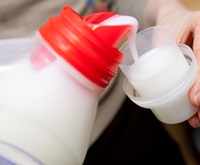One of the top priorities of A.I.S.E. and its network is to help ensure cleaning and maintenance products are safe to use and used safely.
A.I.S.E. is actively involved in the EU legislative agenda on issues relating to the chemical ingredients used to make cleaning and maintenance products.
We work hard to help ensure their safety, for the benefit of human health and the environment and hence society at large.
There are a number of ways in which we do this.
|
 |
A constructive partner
A.I.S.E. and its broad network of members collaborate in partnership with policy makers, regulators and other stakeholders to inform policy and advance knowledge and understanding on issues of concern relating to the chemicals used in our industry’s products.
We are an accredited stakeholder of the European Chemicals Agency,
ECHA, and of a number of other European initiatives and organisations.
As such, we can and do actively provide scientific and technical expertise in areas such as risk assessment, ecotoxicology, product formulation and life cycle analysis, as well as insights from on the ground in individual Member States through our broad network of national associations.
Being centrally placed in the value chain between the chemical industry and end-users, both consumers and professional users, A.I.S.E. regularly takes the lead in organising vertical and industry collaboration, for example with other product manufacturers of chemicals, such as through the
DUCC platform. We are also an active affiliate partner of the European chemicals industry council,
Cefic.
Support for industry
At the same time, A.I.S.E. and its affiliated national associations play a key role in assisting members in the cleaning and maintenance products industry with implementing and complying with European chemicals legislation.
We do this by developing and communicating implementation guidelines at sector level, organising the gathering and sharing of hazard and risk data, offering technical support, running workshops and giving extra help to smaller and medium-sized enterprises.
Specific areas of activity
In this section you can find out more about the policy areas and industry initiatives A.I.S.E. contributes to in striving to fulfill its
mission.
- REACH - is Europe’s ground-breaking regulation on the Registration, Evaluation, Authorisation and Restriction of Chemicals (REACH) that went into force in 2007. It is the most advanced and comprehensive piece of legislation for ensuring the safe use of chemicals through their life cycle developed to date and a significant opportunity to build consumer and end-user confidence in chemicals. Implementing it at all levels of the supply chain, including for users of chemicals such as A.I.S.E. members and their customers, is a challenging task that A.I.S.E. has been very much involved in from the start. Read more about our ongoing committment to improving the legislation in A.I.S.E.'s position on the REACH review.
- Classification and Labelling – The European Regulation for the Classification, Labelling and Packaging of Substances and Mixtures (CLP) aims to ensure that the hazards presented by chemicals are identified clearly and communicated to workers and consumers through a harmonised approach to the classification and labelling of chemicals. A.I.S.E. is actively contributing to ensure that the regulation achieves its aims, notably through the creation of the DetNet initiative intended to help companies get the appropriate classifications of products for skin and eye effects.
- Detergents – European legislation on detergents has been in place since 2005 and it is regularly updated. Recently, A.I.S.E. has been supporting the implementation of the amended Detergents Regulation that went into effect in June 2013, by developing implementation guidelines on phosphate restrictions in consultation with industry and authorities in the Member States. We also provide guidance to consumers on how to use detergents through the Cleanright portal and the I prefer 30° campaign and coordinate industry efforts to improve sustainability through the Charter for Sustainable Cleaning.
- Biocides - Biocidal products contain active ingredients that are used to protect humans, animals, materials or articles against harmful organisms, like pests or bacteria. A disinfectant is a biocidal product because it acts to prevent and get rid of bacteria that may otherwise build up on surfaces, for example, in the kitchen and bathrooms, and in professional settings like food factories, restaurants and hospitals. Biocidal products in Europe are specifically governed by the Biocidal Products Regulation, which entered into force in September 2013, and A.I.S.E. is actively involved in its implementation.
- Indoor Air Quality – Many European citizens spend much of their day indoors: at home, at school, at work and also at leisure. In order to ensure the safe use and enjoyment of air fresheners, A.I.S.E. has developed a product stewardship programme which covers increased risk assessment practices for signatory companies as well as information to consumers about product composition. In addition, A.I.S.E. is participating, together with other industry sectors, in work going on at the European level for the further understanding of the various factors influencing indoor air as well as how indoor air quality can be measured with the objective that quality and comfort of life is secured for all.